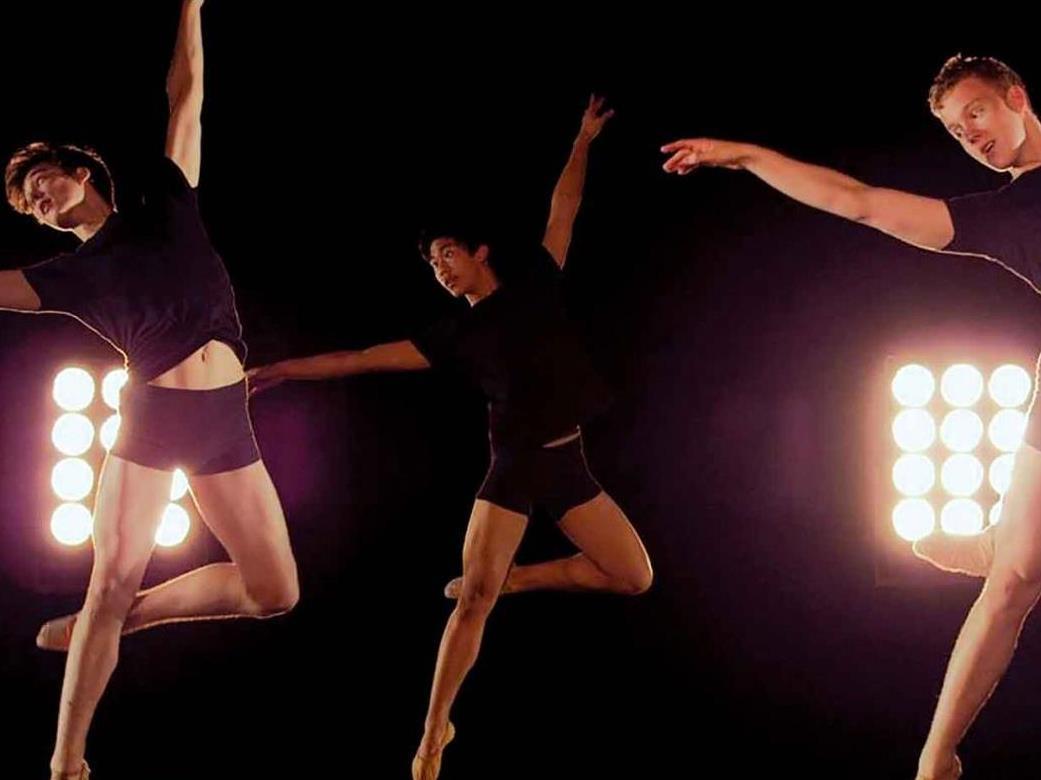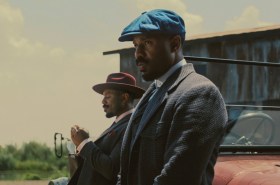The life of the fleet of foot appeals to three teens in at the Norwegian Ballet School, each determined to pursue their passion. In introducing the trio, documentary Ballet Boys cycles through its subjects spouting statements of the obvious, establishing the film’s themes of struggle, enthusiasm and difference. ‘My dream is to be a dancer. A ballet dancer,’ Lukas Bjørneboe Brændsrød tells the camera. ‘Everything is possible if you want it enough,’ says Torgeir Lund. ‘There aren’t many boys who want to dance ballet,’ shares Syvert Lorenz Garcia. The remainder of the feature continues this simple and overt lead, sketching their stories within a conventional framework.
Setting the scene with the thoughts and formative experiences of the three boys, personalities are promptly inscribed that further fulfil traditional bounds. Lukas engages, Syvert writhes with ambition, and Torgeir sits in the middle, so it comes as little surprise when the former begins to monopolise the movie’s attention. Indeed, the triptych of glimpses into male dancing quickly proves fleeting, for the primary roles played by Syvert and Torgeir are ones of camaraderie and contrast. What emerges is one boy’s tale displayed as the dominant narrative, as surrounded by scant supporting parts.
The difficulty of men pursuing the ballet dream has been covered previously, whether in the fictional hit Billy Elliot or the insightful documentary First Position. What carries Ballet Boys as a result is not the individuals but the focus on friendship, the consolation of others in similar circumstances within such a competitive world is a rare point of divergence from the usual explorations of the industry. Even if the commonality of their plights is given the most perfunctory treatment, the film’s strength springs from the notion of sharing. In a field in which success is a solo pursuit, but performances are played out in tandem, conveying the link between the singular and the collective offers astute insights. Also a welcome perspective: exploring the art form outside of its usual geographic strongholds.
Over the course of four years, director Kenneth Elvebakk (The Secret Club) flits from the dance floor to behind the scenes and back again as increasing stakes see Lukas given multiple chances to rise through the ranks, the National Academy of Arts in Oslo and then Royal Ballet School in London are his shining beacons of opportunity. The usual markers of the backstage documentary are present, as the boys’ talking heads continue to emote their endeavours not just in dance but in life, intercut with scenes of their homes and families, practise footage, and their movement in action.
Though attempting to cast a wide net over coming of age while chasing a dream and the ideas of mateship, manhood and maturity that go with it, the longitudinal study that eventuates never delves beneath the surface, both by virtue of its choice of ever-narrowing viewpoint and its brief, 75-minute length. Technical components do little to lift what remains a standard rendering of the subject in almost every aspect, the roving grey shots of the build-up and the colourful energy of the culmination just like the film itself: capable, watchable, but cursory.
Rating: 3 out of 5 stars
Ballet Boys
Director: Kenneth Elvebakk
Norway, 2014, 75 mins
Scandinavian Film Festival
www.scandinavianfilmfestival.com
Canberra: 8 – 20 July – Palace Electric
Sydney: 9 – 27 July – Palace Verona & Palace Norton St
Melbourne: 10 – 27 July – Palace Cinema Como, Palace Brighton Bay
Brisbane: 11 – 20 July – Palace Centro
Adelaide : 23 – 31 July – Palace Nova Eastend
Perth: 24 – 30 July – Cinema Paradiso
Byron Bay: 25 – 30 July – Palace Byron Bay
Actors:
Director:
Format:
Country:
Release:





